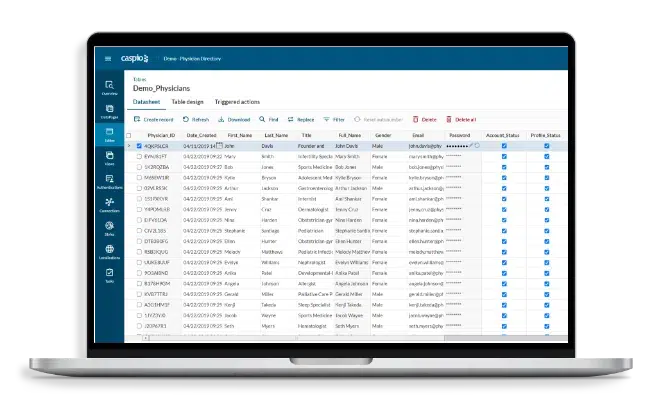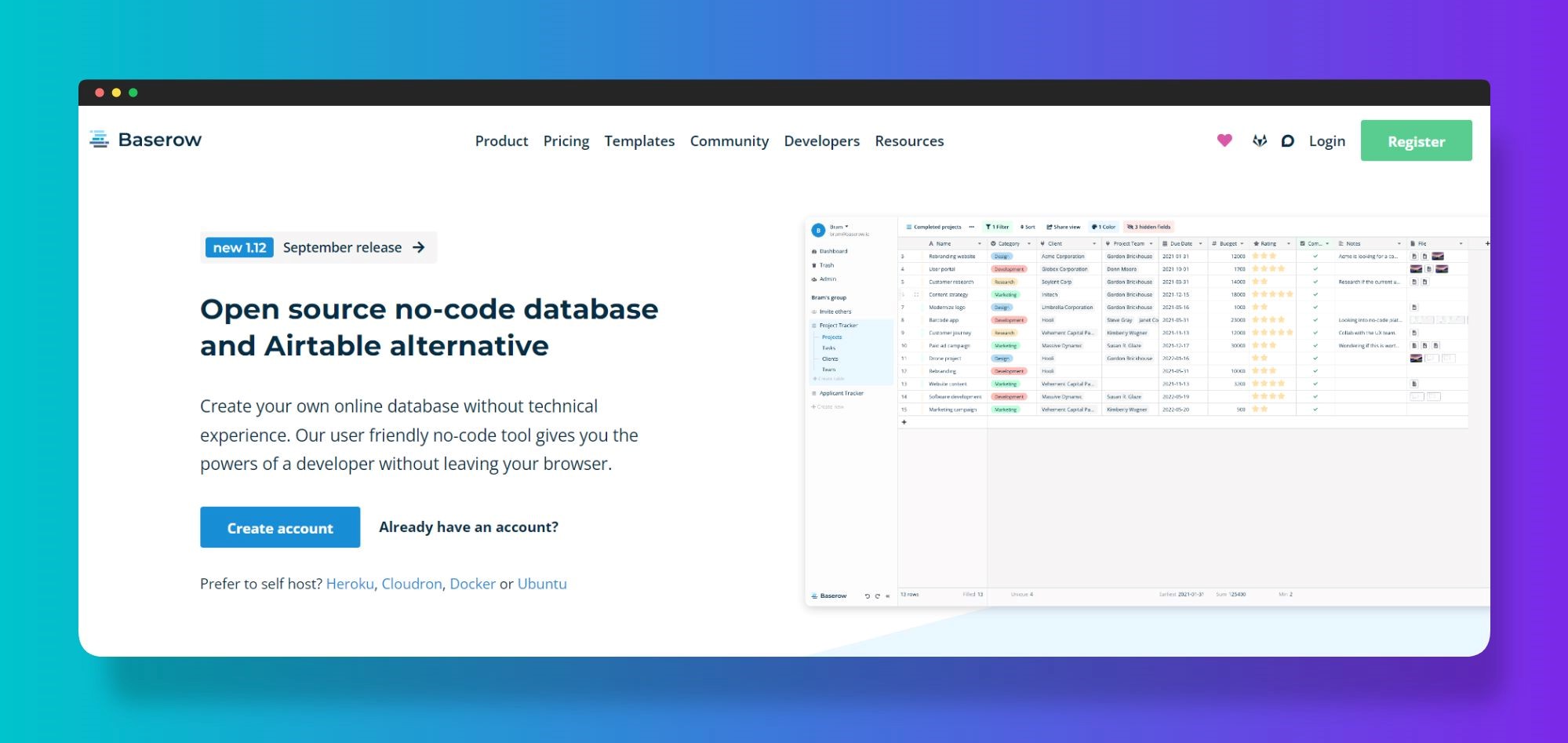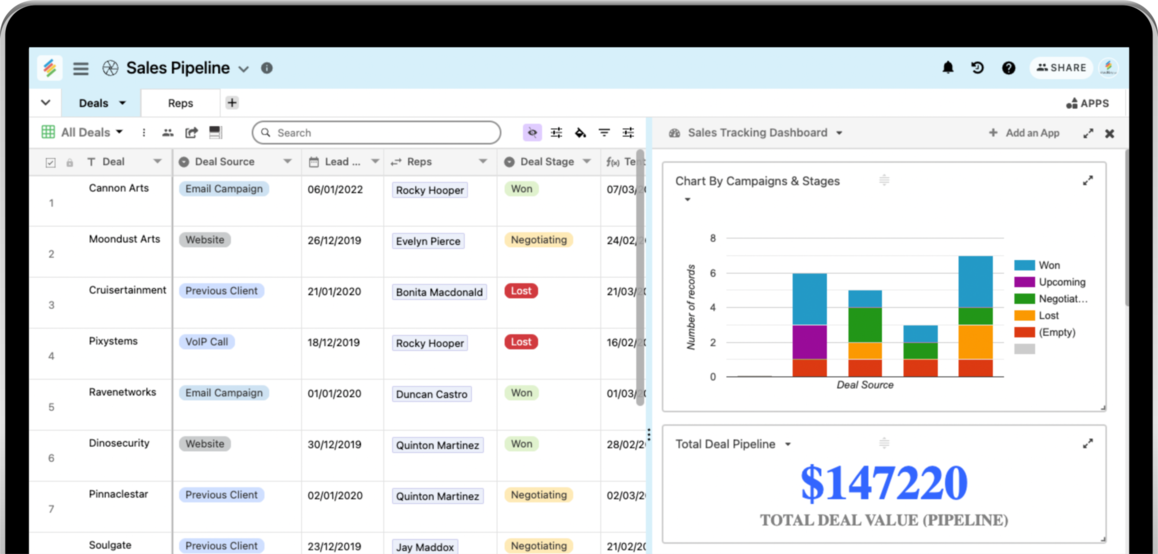No-Code Open Platform Database Production: Streamline Complicated Advancement Jobs
Wiki Article
Exploring the Benefits of Scalable Data Sources That Need No Coding Skills for Effective Data Management Solutions
The emergence of scalable databases that get rid of the requirement for coding abilities offers a transformative opportunity for companies seeking reliable data administration services. By making it possible for non-technical users to harness the power of data with intuitive user interfaces, these systems improve ease of access and foster collaboration throughout varied teams. Their cost-effectiveness and flexibility to progressing business needs can dramatically streamline operational processes. As we take into consideration the implications of such innovations, it ends up being crucial to check out just how they can improve the landscape of data monitoring and drive lasting growth in a competitive atmosphere.Boosted Accessibility for Users
Enhanced access for users is an essential element of scalable data sources, making certain that information management systems are instinctive and easy to use. In an era where data-driven decisions are vital, accessibility allows a wider range of users, consisting of those without substantial technological knowledge, to engage with data source systems efficiently. This democratization of data gain access to helps with boosted partnership throughout divisions, equipping employees to draw out insights and make informed decisions.Easy to use user interfaces, such as aesthetic information and drag-and-drop features representation, simplify complex information interactions. These enhancements minimize the learning contour connected with traditional data source administration, making it possible for users to concentrate on leveraging data as opposed to grappling with technological intricacies. Scalable databases commonly integrate customizable dashboards and real-time analytics, giving individuals with immediate insights customized to their details demands.

Cost-Effectiveness and Resource Cost Savings
Reliable data management not just rests on ease of access however additionally on cost-effectiveness and resource cost savings. Scalable data sources made for individuals with no coding skills considerably minimize economic worries commonly linked with conventional database monitoring systems. By getting rid of the need for specialized shows competence, organizations can allocate their sources more efficiently, focusing funds on core service activities instead than extensive training or working with proficient workers.Additionally, these databases often utilize cloud-based options, which further decrease prices associated with hardware and upkeep. Organizations can scale their database services according to their needs, avoiding the expenses sustained from over-provisioning resources. This adaptability implies services can adjust to changing demands without incurring unnecessary expenses, leading to significant long-term financial savings.
Furthermore, straightforward user interfaces enhance data entry and management procedures, lowering the moment invested on administrative jobs. This effectiveness equates into labor expense savings, permitting groups to concentrate on strategic campaigns rather than regular maintenance. Overall, taking on scalable data sources that require no coding skills promotes an extra economical technique to information management, making it possible for companies to optimize their sources while maintaining high levels of operational performance.
see this page
Improved Partnership Throughout Teams

Furthermore, scalable data sources help with seamless communication among employee. With user-friendly interfaces that require no coding abilities, staff members can conveniently create, customize, and share reports or dashboards tailored to their details demands. This democratization of information empowers non-technical individuals to contribute understandings, boosting the collaborative atmosphere.
Furthermore, these databases support concurrent access, enabling numerous customers to work with the very same dataset simultaneously. This attribute boosts efficiency, as teams can participate in joint information evaluation without the threat of variation control concerns. The ability to leave comments or notes directly within the data source further advertises dialogue and clarifies information interpretations.
Streamlined Information Monitoring Processes
In today's data-driven atmosphere, organizations identify the necessity of structured data management refines to take full advantage of efficiency and accuracy. By leveraging scalable data sources that require no coding skills, businesses can streamline their information handling and lower the intricacies usually related to conventional database systems. This accessibility encourages non-technical individuals to involve straight with information, assisting in quicker decision-making and minimizing dependence on specialized IT personnel.Structured data monitoring procedures enhance workflow by automating regular tasks such as information entrance, validation, and coverage. Automated data assimilation ensures that details from different resources is aggregated effortlessly, removing silos and promoting a combined sight of essential business metrics (no-code). In addition, easy to use interfaces allow personnel to adjust data conveniently, allowing them to produce insights that drive calculated initiatives without the demand for substantial training.
This performance not only increases functional procedures however likewise minimizes the possibility for human mistake, guaranteeing that data continues to be precise and trusted. Eventually, structured data monitoring processes through scalable databases cause enhanced efficiency, enabling organizations to concentrate on core tasks while ensuring that their information monitoring practices are reliable and reliable.
Scalability for Expanding Organizations

For broadening business, the capacity to scale up or down is crucial. A scalable data source can handle an influx of information generated from new customers, products, or services, making sure that company procedures stay uninterrupted. In addition, these databases offer the ability to take care of peak loads effectively, which is vital throughout periods of rapid growth or seasonal spikes.
Additionally, lots of scalable database options are created with straightforward user interfaces that require no coding abilities, empowering non-technical team to take care of information properly (no-code). This democratization of information monitoring permits organizations to designate resources purposefully and minimize dependence on specialized IT workers
Ultimately, embracing go to website a scalable data source not only enhances operational effectiveness but likewise fosters an environment where organizations can develop and introduce without the restrictions of traditional data source systems. This versatility settings organizations for long-term success in today's competitive landscape.
Conclusion
In conclusion, scalable data sources that call for no coding skills provide considerable benefits for efficient information management. By enhancing information administration processes and supplying scalability for expanding businesses, such services enable companies to adjust to altering demands effectively.Improved accessibility for users is a crucial element of scalable databases, making certain that data management systems are intuitive and user-friendly.User-friendly user interfaces, such as visual information and drag-and-drop functions representation, streamline complicated information interactions. In general, embracing scalable databases that require no coding skills fosters a more economical method to data monitoring, allowing organizations to maximize their sources while maintaining high levels of operational efficiency.
By leveraging scalable data sources that call for no coding abilities, companies can streamline their data handling and lower the complexities commonly connected with typical database systems - no-code.Structured information administration processes boost process by automating regular jobs such as data access, recognition, and reporting
Report this wiki page